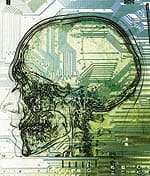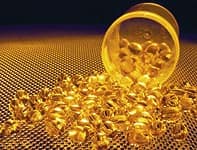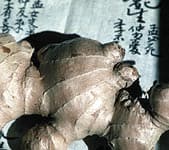Life Extension Magazine®
Impairment of memory and learning need not accompany normal aging. Susceptibility to age-related cognitive decline varies widely among individuals, suggesting that interventions may be helpful in preventing its occurrence. A large body of scientific studies indicates that age-related cognitive decline may be partially controlled or prevented. A particularly intriguing development in the field of brain health and longevity occurred with the release of a Canadian study on the use of a combination dietary supplement in the prevention of age-related cognitive decline.1 Using the transgenic mouse model of aging, researchers discovered that a cocktail of 31 nutrients and plant-based extracts abolished age-related cognitive decline in the test subjects. This exciting finding lends hope to the prospect of minimizing or eliminating cognitive decline in humans. In this article, we examine the mouse study and the nutritional and herbal remedies that make up this powerful anti-aging supplement. Although findings from animal studies cannot be applied directly to humans, they shed light on mechanisms of brain aging and open fruitful avenues for human intervention. An interesting model for age-related cognitive decline is transgenic mice that are genetically modified to produce increased growth hormone, a crucial regulator of growth and aging.1 Young, mature transgenic mice learn mazes faster and with fewer errors than normal mice. As they age, transgenic mice accumulate more free radicals in the brain than normal mice, causing learning impairment and premature death. In a recent study from McMaster University in Hamilton, Ontario, transgenic mice were fed a unique combination of nutrients designed to protect against age-related cognitive decline.1 This “anti-aging” supplement contained many vitamins, minerals, antioxidants, herbal extracts, and brain-supportive nutrients to improve the stability of nerve cell membranes, boost mitochondrial energy production, optimize insulin sensitivity, and reduce free-radical damage and inflammation. After receiving this supplement daily for nearly three years, a large group of transgenic mice did not develop age-related cognitive decline. Older transgenic mice that were given the supplement learned a complex maze faster than younger, untreated transgenic mice, with virtually no impact on growth and no apparent negative consequences.1
With increasing age, untreated transgenic mice were dramatically worse—while treated transgenic mice grew progressively better—in terms of their number of errors and attempts required to learn the maze. Learning was at least 200–250% better in treated older transgenic mice than in untreated normal mice or in untreated older transgenic mice.1 Implications for Human HealthWhat are the implications of the transgenic mouse study for age-related cognitive decline in humans? If cognitive decline can be prevented in mice using a combination of supplements, then perhaps nutritional remedies can also prevent cognitive decline in humans. Recent findings from other studies suggests a sound rationale underlying each of the 31 nutrients composing the anti-aging supplement used in the mouse study.2,3 The anti-aging supplement included:
Many of these ingredients act in several different ways to protect against the ravages of aging, and are more effective when taken together than when taken individually.2,3 Animal studies, population studies in normal aging and in age-related diseases, and clinical trials all suggest that these nutrients are vital to brain health and might help protect against age-related cognitive decline. Enhancing Brain Cell EnergyTo perform its complex functions, the brain requires a continuous high-energy level. Aging brain cells are inefficient at glucose intake and mitochondrial energy production. This allows for the buildup of cellular debris, eventually destroying brain cells and causing age-related cognitive decline. Nutrients that can help restore energy production may therefore help prevent or control brain aging. By transporting fatty acids into the mitochondria, the amino acid acetyl-L-carnitine helps to produce energy while preventing the accumulation of toxic fatty acids. Feeding acetyl-L-carnitine to aged rats for long periods reverses the buildup of toxic fatty acids in brain cell membranes to a more normal pattern typical of younger animals.4 Supplements combining acetyl-L-carnitine with the antioxidant lipoic acid help reverse mitochondrial breakdown, oxidative damage, and memory loss in old rats.2,3,5 Based on these promising results, this combination is being tested in humans. “Each chemical solves a different problem—the two together are better than either one alone,” senior researcher Bruce Ames, a molecular biology professor at the University of California, Berkeley, said in a news release. “With the two supplements together, these old rats got up and did the Macarena. The brain looks better, they are full of energy—everything we looked at looks more like a young animal.”6 A recent review of well-controlled clinical studies suggests mild benefits of acetyl-L-carnitine in probable Alzheimer’s disease.7 Compared to placebo, acetyl-L-carnitine was better at improving memory scores. “[Acetyl-L-carnitine] slows the progression of Alzheimer’s disease in younger subjects,” researchers concluded from a well-designed study of more than 300 patients, conducted at 24 US clinics.8 Another high-octane booster of brain energy is coenzyme Q10 (CoQ10), also called ubiquinone because it is present in every cell in the body. By facilitating synthesis of the basic energy molecule adenosine triphosphate (ATP), this potent antioxidant helps generate 95% of the body’s energy. In animals, CoQ10 levels drop by about 25% with illness, 50% with aging, and 75% before death.9 Studies in old rats suggest that dietary CoQ10 reaches brain mitochondria, restores CoQ10 levels to those seen in young animals, and may protect against degenerative brain diseases.1 In a study of 80 patients with the degenerative neurological condition known as Parkinson’s disease, high dosages of CoQ10 slowed progressive worsening in function—especially feeding, dressing, bathing, and walking—by 44% compared to placebo.11 Based on these encouraging results, the researchers recommended additional testing in hundreds of patients.
Brain-Friendly Fatty AcidsAlthough the accumulation of toxic fatty acids can damage the brain, not all fatty acids are harmful. Brain cells use essential fatty acids, including EPA (eicosapentaenoic acid) and DHA (docosahexaenoic acid), as fuel and as basic building blocks. Cod liver oil, cold-water fish, and flaxseed oil provide these omega-3 fatty acids. By controlling chronic inflammation, omega-3 fatty acids may help reverse brain damage associated with aging and degenerative diseases. In studies with aged and young rats, DHA supplementation significantly decreased free-radical levels of lipid peroxide in the hippocampus, a brain region involved in memory, and also reduced errors in maze learning.12 Other benefits of omega-3 fatty acids include lowering blood triglycerides and preventing blood from clotting too quickly,13 which may indirectly improve brain function by increasing blood flow and reducing stroke risk. In some individuals, depression contributes to memory decline with aging. Levels of omega-3 fatty acids in red blood cell membranes may be reduced in depressed people.14-16 In a study of 815 Chicago residents who were 65 years of age or older, the risk of developing Alzheimer’s disease over four years was 60% less for those who ate fish at least once a week than for those who rarely or never ate fish.17 | |||
Hormones Affect Brain FunctionDeclining hormone levels with age affect the brain as well as other organ systems. In the brain, key hormones improve energy metabolism, protect brain cell membranes, and help maintain levels of acetylcholine, a neurochemical underlying memory. The hormone DHEA (dehydroepiandrosterone) improves brain cell activity and facilitates changes in nerve cells, allowing them to record new memories. Remarkably, DHEA added to human brain stem cells in the laboratory dramatically increased their growth rate.18 DHEA production falls off with age in humans,19 from about 30 mg a day at age 20 to less than 6 mg a day by age 80. In aged rodents, DHEA enhances memory20 and quadruples acetylcholine release from hippocampal cells.21 By interacting with specific nerve cell receptors, DHEA improves short-term memory for maze learning and long-term memory in mice.22 In Alzheimer’s disease, DHEA levels decrease along with hippocampal blood flow and activity.23 DHEA may help prevent the formation of a protein that accumulates in brain cells with aging and with Alzheimer’s disease.24 In the elderly, some studies suggest that DHEA may improve memory deficits and depression while enhancing physical and psychological well-being.20 For safe, long-term use, DHEA should be taken with antioxidants25 to prevent possible liver damage reported with massive doses26 that were many times higher than those used in supplements that humans take. Antioxidants that are especially effective in preventing free-radical damage in the liver include green tea, vitamin E, and N-acetylcysteine. The hormone melatonin is a potent antioxidant that regulates the body’s internal clock and enhances cognitive function. With aging, and more so with certain types of depression and dementia, blood melatonin levels decrease and “flatten out” rather than peaking and falling at characteristic times during the 24-hour cycle.27 In a placebo-controlled study of 26 healthy elderly volunteers, melatonin taken nightly for four weeks improved verbal learning test scores and refreshing sleep.28 “Melatonin administration at a dose of 1 mg nightly may be effective in improving certain aspects of cognitive functioning and subjective reports of sleep quality in elderly subjects,” the researchers concluded. “It may prove to be a useful therapeutic agent in the treatment of age-related cognitive decline.”28 B Vitamins Boost Brain FunctionThe B vitamins, including folate, protect brain function by regulating energy metabolism, assisting in the production of chemicals that affect mood, and contributing to the myelin sheath surrounding and protecting nerves. B-vitamin deficiencies may therefore impair memory and increase anxiety, confusion, irritability, and depression.29 Low levels of B6, B12, and folate are associated with decreased levels of S-adenosyl-L-methionine, a nutrient with antidepressant and potential cognition-enhancing effects.30 The elderly have higher requirements for some vitamins (including vitamin B6), but poor nutrition and diminished nutrient absorption increases their risk for vitamin deficiency. Vitamins that dissolve in water, including B complex and vitamin C, are rapidly excreted and must be replenished daily. Based on large population studies, high intake of B vitamins and folate may help protect against age-related cognitive decline.31 Among 137 elderly volunteers who were studied for six years, those with higher intake of B complex and vitamins A, C, and E had better scores on tests of abstract reasoning and visual-spatial function.32 Although these effects were relatively modest, they were nonetheless striking because the volunteers were adequately nourished, well educated, and initially free of significant cognitive impairment. In a three-year Swedish study of 370 healthy elderly adults who were at least 75 years of age, those with even slightly low levels of vitamin B12 and folate had twice the risk of developing Alzheimer’s disease as did those with normal levels of these vitamins.33 In a population study of more than 3,000 Chicago residents aged 65 and older, those with the lowest intake of vitamin B3 (niacin) were 70% more likely to develop Alzheimer’s disease than those with the highest intake, and their rate of cognitive decline was about twice as fast.29 “Dietary niacin may protect against Alzheimer’s disease and age-related cognitive decline,” the researchers concluded. Replacement of B vitamins in deficient individuals often improves short-term memory and language skills. Elderly subjects who are low in folic acid show impairment in both word recall and object recall, suggesting a vital role for folic acid in memory function in later life.34 Memory impairment in the elderly related to vitamin B12 deficiency can be reversed by vitamin B12 injections or supplements.35
High doses of vitamin B6 and folate reduce blood levels of homocysteine, a toxic buildup product linked to heart disease and cognitive impairment.36 In dementia patients with even mild deficiencies of vitamin B12 or folate, replacement can improve cognition,37 especially in those with elevated blood homocysteine levels.38 In a study of 76 elderly males, vitamin B6 was better than placebo in improving long-term information storage and retrieval.39 Antioxidants Protect Against Free RadicalsIn aging of the brain or elsewhere in the body, a chief culprit is damage by free radicals, or atoms with unpaired electrons.40 Just as exposure to oxygen eventually rusts iron, exposure to reactive oxygen species injures mitochondria, membrane lipids, proteins, and nucleic acids needed for cell structure and function. Lipoic acid, green tea, and other antioxidants are free-radical scavengers that protect the brain. They may help to stave off age-related cognitive decline by protecting the heart and blood vessels, thereby improving circulation to the brain and reducing stroke risk. Laboratory studies also support the role of antioxidants in protecting the brain. Rats subjected to oxidative stress affecting the hippocampus demonstrate impaired learning and memory deficits. Vitamin E supplementation accelerated learning and prevented the memory deficits associated with oxidative stress.41 Nerve cells grown in the laboratory and damaged chemically were protected by antioxidants, including vitamin E and glutathione,42 suggesting that antioxidants may reduce neuronal damage in pathological conditions associated with oxidative stress. Many population studies have investigated the link between antioxidant intake and age-related cognitive decline. In a Swiss study that followed 442 elderly people for 22 years, higher blood levels of vitamin C (ascorbic acid) and beta-carotene predicted better test scores for free recall, recognition, and vocabulary.43 Additionally, plasma antioxidant levels remained significantly stable over the 22-year study period. “Among people aged 65 and older, higher ascorbic acid and beta-carotene plasma levels are associated with better memory performance,” the researchers concluded. “These results indicate the important role played by antioxidants in brain aging and may have implications for prevention of progressive cognitive impairments.” In another study, blood levels of vitamin C were lower in 43 institutionalized patients with dementia than in 50 institutionalized patients without cognitive impairment, and vitamin C levels were associated with higher scores of mental functioning.44 Based on these findings, the researchers recommended studying whether vitamin C supplementation would prevent or delay cognitive decline in patients with dementia and Alzheimer’s disease.
In a random sample of 815 community-dwelling residents aged 65 and older, higher dietary intake of vitamin E was associated with up to a 70% decreased risk of developing Alzheimer’s disease over a four-year period. This was true only for individuals not carrying a specific gene (apolipoprotein E4) related to Alzheimer’s risk.45 Patients with Alzheimer’s disease have lower levels of vitamin E in the cerebrospinal fluid bathing the brain than do healthy elderly people, providing further support for the theory that vitamin E supplementation may help to delay or protect against age-related cognitive decline or Alzheimer’s.46 Over a six-year period, the Rotterdam Study followed more than 5,000 Dutch community residents without dementia who were at least 55 years old.47 High intake of vitamins C and E from foods, but not from supplements, was associated with up to a 42% reduction in risk for Alzheimer’s disease, especially in smokers. This type of study reveals the importance of consuming plant-derived antioxidants. More evidence supporting the protective role of vitamin E comes from a study of nearly 3,000 community-dwelling elderly who completed a survey about their diet and performed four different cognitive tests three years later. After accounting for age, sex, smoking, alcohol consumption, and intake of other vitamins, subjects in the highest 20% of total vitamin E intake had a 36% reduction in their rate of cognitive decline compared with those in the lowest 20%.48 “Vitamin E intake, from foods or supplements, is associated with less cognitive decline with age,” the researchers concluded. On the other hand, a large study of supplement use and cognitive decline in elderly residents of southwestern Pennsylvania did not confirm protection against age-related cognitive decline by supplements containing vitamins A, C, or E, beta-carotene, zinc, or selenium.49 What accounts for this discrepancy? Scientists from the University of Valencia in Spain suggest that antioxidant supplements may protect only individuals under oxidative stress.50 When these researchers gave vitamin E to patients with Alzheimer’s disease, they found cognitive improvement only in patients with blood tests indicating oxidative stress. “The effect of vitamin E on Alzheimer’s disease patients showed considerable variations both in its antioxidant function and in its capacity to improve cognitive functions,” they concluded. Further large-scale studies may help to determine which individuals are most likely to benefit from vitamin supplements. Selenium, a trace mineral known for its antioxidant and immune-boosting effects, appears to also play a role in cognitive function. In a population study of more than 1,000 French subjects aged 60 to 70, low blood levels of selenium and other antioxidants predicted a higher rate of cognitive decline.51 “These results suggest that increased levels of oxidative stress and/or antioxidant deficiencies may pose risk factors for cognitive decline,” the researchers concluded. “The direct implication of oxidative stress in vascular and neurodegenerative mechanisms that lead to cognitive impairment should be further explored.” Zinc, another antioxidant mineral that is involved in many enzymatic reactions in the body, may also play a role in protecting brain function and health. Zinc is crucial during times of rapid brain growth, and zinc deficiency in juveniles or adolescents causes cognitive impairment.52 Zinc’s role in protecting brain health in adults is less clear, and further studies are warranted. | ||
Ginkgo, Ginger, and Aspirin Improve Brain CirculationExtract of ginkgo biloba, derived from the oldest living species of tree on Earth, is a potent antioxidant53 that helps to counteract age-related changes in blood flow to the brain.54 By dilating and toning blood vessels, interfering with platelet activity to decrease blood clotting, and preventing oxidative damage to mitochondria and nerve cells,54 ginkgo enhances brain activity and energy metabolism,55 and decreases symptoms of depression and memory impairment.56 Ginkgo may be helpful in mild to moderately severe cognitive impairment associated with early Alzheimer’s disease or vascular dementia, according to a study of 202 patients reported in the Journal of the American Medical Association. During one year of treatment, patients receiving ginkgo maintained cognitive function and improved slightly in social functioning, while the placebo group deteriorated in both areas.57 In a review of 40 clinical studies using ginkgo for cerebral vascular insufficiency and for age-related dementia, nearly all trials showed improvements relative to placebo in memory impairment, confusion, fatigue, anxiety, and other symptoms.58 Another review also showed promising benefits in cognitive symptoms without serious side effects in some studies, suggesting the need for a larger, well-designed trial.59 Based on European studies, Germany has approved ginkgo biloba extract for treatment of Alzheimer’s disease and other dementias. In a placebo-controlled study,20 outpatients with mild to moderate Alzheimer’s had significant improvement in attention and memory performance after three months of treatment.60 One study showed no difference in memory scores or perceptions of improvement in cognitive function in healthy adults after six weeks of supplementing with ginkgo,61 whereas another study showed improvements with similar doses.62 A placebo-controlled study in 60 healthy volunteers showed significant improvements after 30 days of ginkgo treatment in speed of information processing, working memory, and executive processing.63 Ginkgo may be most beneficial for short-term memory in healthy adults if given as a single dose of 120 mg rather than as 40 mg three times daily.64 A German study investigated how combining ginkgo and ginger affects learning, memory, and brain oxidative stress in aged rats.65 Like ginkgo, ginger has traditionally been used by herbalists as a circulatory tonic. The investigators found that the ginkgo and ginger combination significantly reduced two indicators of oxidative stress in the brains of aged rats. Additionally, the ginkgo and ginger supplement helped to facilitate spatial learning in the animals. Low-dose acetylsalicylic acid, or aspirin, acts as a mild blood thinner and lowers the risk of vascular events in humans. Increasing evidence suggests aspirin may also reduce the rate of cognitive decline in the elderly.66 A large study of aspirin’s ability to prevent vascular dementia in the elderly is currently underway in Australia. Other Nutrients Show PromiseIn a mouse model of brain aging, green tea extract prevented both impairments in working memory and shrinking and oxidative DNA damage to brain regions involved in memory.67 An animal model of vascular injury to the brain showed a neuroprotective effect of antioxidants that included rutin, selenium, and garlic oil.68 Aged garlic extract contains phytochemicals that prevent oxidative damage, and has shown the ability to increase cognitive function, memory, and longevity in mouse models of aging.69
Chromium improves control of blood sugar. By increasing insulin-receptor activity within the hypothalamus, a vital center for brain control, it may rejuvenate the aging brain.70 In animal studies, chromium supplements increase activity of nerve chemicals involved in controlling moods, suggesting a possible antidepressant effect.71 Bioflavonoids are a diverse group of plant-derived compounds that exert myriad effects in the body. Quercetin, a bioflavonoid with strong antioxidant properties, is found in a variety of fruits and vegetables. In a study involving mice, quercetin significantly reversed age-related cognitive decline.72 Additionally, quercetin reversed increased markers of oxidative stress and the decline of the crucial antioxidant glutathione in the forebrain, two other age-associated changes. North American ginseng contains numerous bioactive compounds that exert many beneficial effects. One of the ginsenoside compounds from North American ginseng has been found to prevent memory deficits in rats.73 This compound facilitates the release of the neurotransmitter acetylcholine from the hippocampus, an area of the brain involved in memory and mood. ConclusionAs science advances our understanding of brain aging, we have discovered many promising paths to preserving cognition well into chronological old age. Lessons learned from animal studies suggest how nutrients may best be combined to prevent age-related cognitive decline. Free radicals are a significant culprit, interfering with energy metabolism, blood flow, and nerve structure and function. Mitochondrial energy boosters, vitamins, hormones, and other antioxidants are effective weapons in the war against oxidative stress, safely enhancing energy production and blood flow, suppressing inflammation, maintaining the structural integrity of nerve cell components, and facilitating neuronal activity. Because these antioxidants are involved in vital functions in virtually all organ systems, supplementation to prevent age-related cognitive decline may also help protect against other age-related conditions. Nutrients have different mechanisms of action, so combining them may increase their benefits beyond that expected when each is used individually. Some physicians can offer specific advice about potential interactions of these supplements with prescription medications such as Coumadin®. Thanks to this nutritional armamentarium, there is reason to hope that age-related cognitive decline need not be an inevitable consequence of aging. With further research, application of these strategies to early Alzheimer’s and other dementias might ultimately help reduce the toll of these dreaded and increasingly common diseases.
|
|||||||||||||||||||||||||||||||||||||||||||||||||||||||||||||||||||||||||
| References | |||||||||||||||||||||||||||||||||||||||||||||||||||||||||||||||||||||||||
|
|||||||||||||||||||||||||||||||||||||||||||||||||||||||||||||||||||||||||







